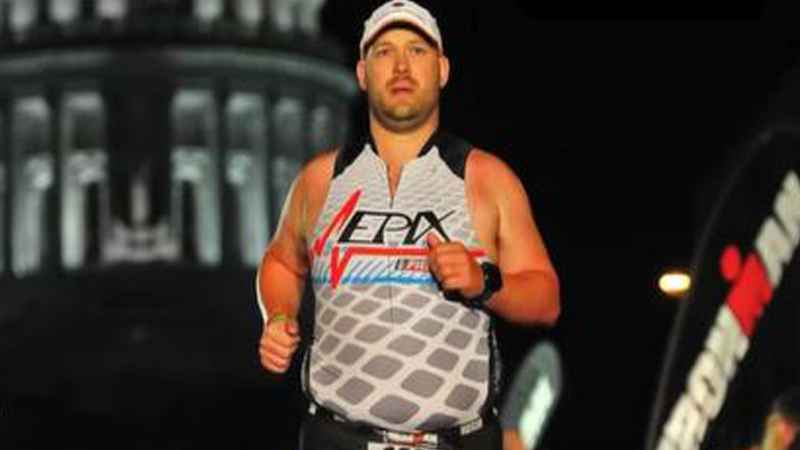Minnesota’s first critical COVID-19 patient prepares for Ironman Triathlon after spending nearly a month in the hospital
[anvplayer video=”5011440″ station=”998122″]
Saturday marks one year since the first confirmed case of COVID-19 in Minnesota.
5 EYEWITNESS News spoke with Ben O’Donnell, the state’s first critical COVID-19 patient, as he reflected on his near-death experience and year-long recovery.
"I definitely knew something was different than any illness I’d had before," O’Donnell recalled.
O’Donnell said he started feeling sick in late February 2020, after coming home from a business trip to Colorado and Texas.
"I just kept getting progressively worse throughout the week. I think it was nine days I had a fever between 102 and 104 before I went to the hospital," O’Donnell said. "Even when I went into the hospital on Monday the 9th of March, I was thinking I was going to get fluids and get sent home. They admitted me straight to the ICU that night."

[KSTP]
O’Donnell became the state’s third confirmed case of the virus but the first person to become hospitalized in critical condition.
The 38-year-old had been training for an Ironman Triathlon and had no underlying medical conditions.
"It confirmed all of our worst fears, that a young healthy person could get so sick with COVID that they could be on the verge of death," recalled his critical care surgeon, Dr. Melissa Brunsvold, who is the system director for ECMO at M Health Fairview and the University of Minnesota.
ECMO, or extracorporeal membrane oxygenation, is a device that can temporarily take over the work of the lungs.
O’Donnell ended up spending 28 days in the hospital at M Health Fairview University of Minnesota Medical Center, including 15 days on a ventilator and 12 days on ECMO.
"When somebody has a bad pneumonia, their lungs are stiff and swollen. You can’t stop breathing, you can’t rest, so ECMO gives us the chance to rest and turn the ventilators way down and let the lungs heal," Dr. Brunsvold explained.
O’Donnell is believed to be the first COVID patient in North America who was put on ECMO and survived. Since then, 47 other Minnesotans diagnosed with COVID-19 have been put on ECMO, including 20 at M Health Fairview.
Dr. Brunsvold said their medical team has been involved in other cutting-edge research as well, which has helped to evolve the way they treat COVID-19.
"I think one of the things is, we’re identifying who’s going to get sick earlier, so it’s not this crash to jump in and save somebody’s life," Dr. Brunsvold explained. "The changes in the therapies over time have meant that our survival has just gone up in a really gratifying way."
Since the first case of COVID-19 in our state one year ago, more than 488,170 Minnesotans have been diagnosed with COVID-19 and more than 6,534 people have died.
MDH: 13 new COVID-related deaths, 813 new positive cases in Friday’s report
O’Donnell said he has taken his recovery day by day over the past year.
"After leaving the hospital, I spent two weeks on supplemental oxygen. I used a walker probably for about a month," O’Donnell said. "My first day out of the hospital, I went for a walk, seven minutes at one mile per hour. That’s as far as I could get. And then just doing that every day until I could get enough stamina to keep going."
Amazingly, one year later, he is preparing to do another Ironman Triathlon. The race involves a 26.2-mile run, 112 miles of cycling and a 2.4-mile swim.
O’Donnell, who recently moved to Canada, plans to compete in the race in Texas on April 24th.
ESPN has been shooting an upcoming special with O’Donnell, featuring his road to recovery.
O’Donnell is using his race to raise money for non-profits impacted by COVID-19. You can donate here.
"How fortunate I was, it makes me want to do what I can to help others," O’Donnell said.
He said he still has lingering side effects from COVID-19. His left thigh is perpetually numb and he deals with ‘brain fog,’ a condition many other COVID-19 survivors report suffering from.
But, he says, coming close to death one year ago helped put his life into perspective.
"I’m still here and able to have this conversation with you and hug my wife and daughter at night," O’Donnell said. "Those are the big things."
Ironman triathlete almost dies from COVID-19, sets new goals after surviving